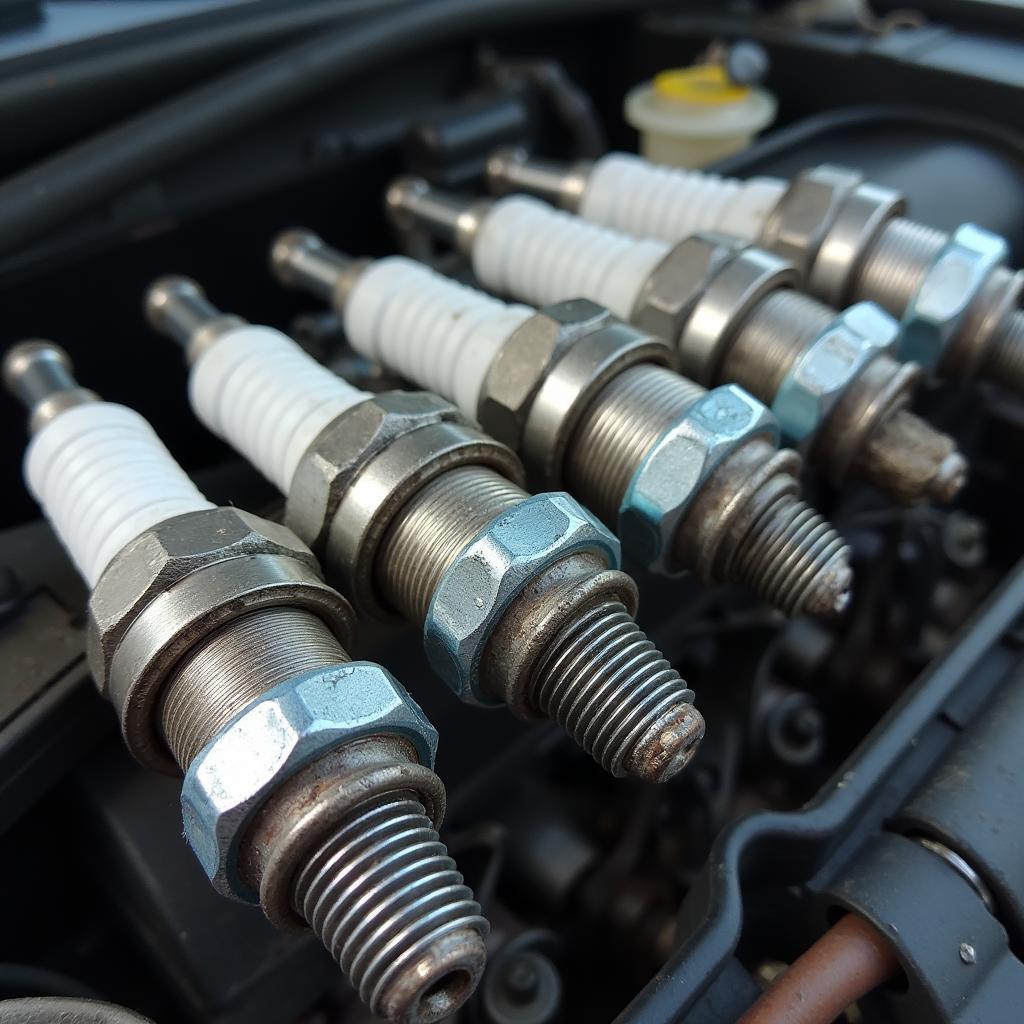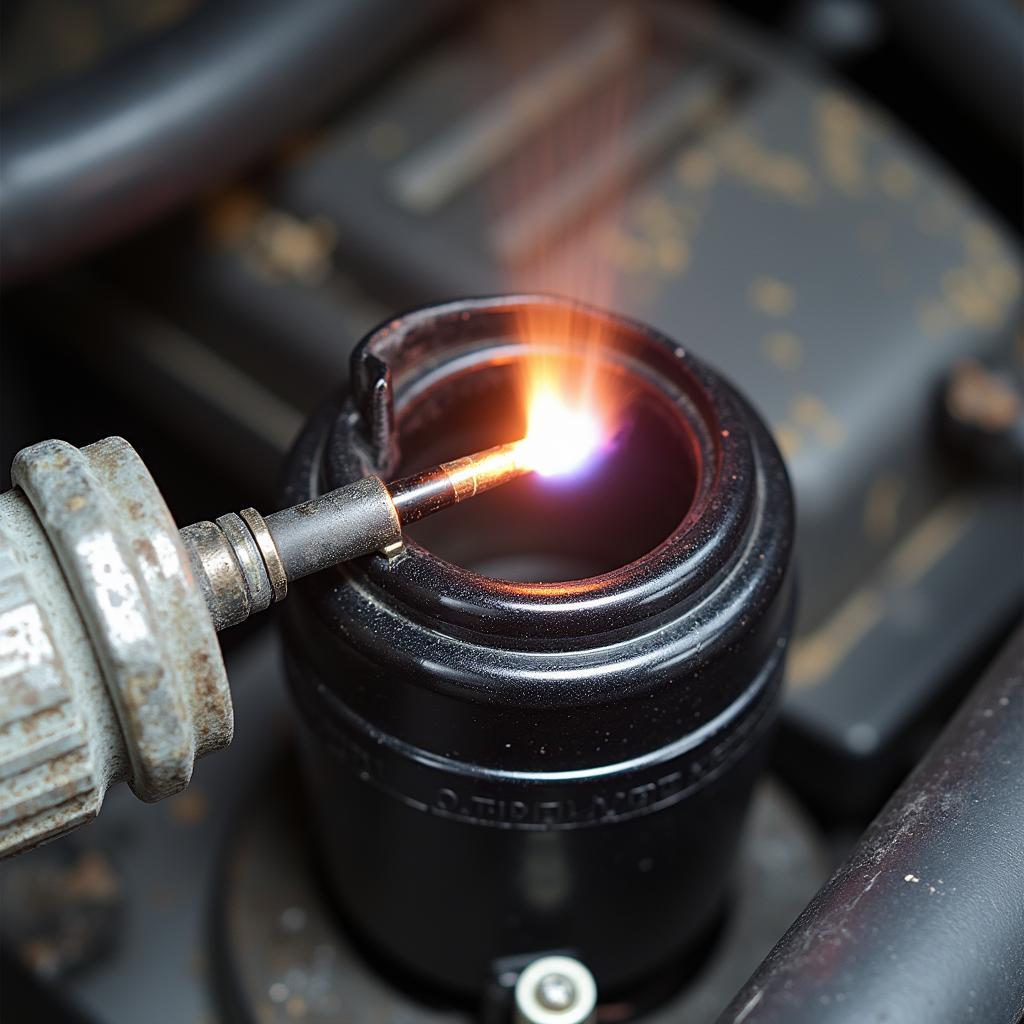Are you experiencing a car engine problem that’s causing your car to jitter? This is a common issue that can be frustrating and potentially dangerous. A jittering car engine is a symptom of several problems that can be easy to fix or require professional help. In this article, we’ll dive into the common reasons for car engine problems, specifically the causes of car jittering, how to diagnose the issue, and how to fix it.
Why Is My Car Engine Jittering?
Car engine jittering, also known as engine misfiring, is a common problem that can be caused by various factors. When your car’s engine misfires, it means that one or more cylinders aren’t igniting the fuel properly, causing a rough idle and a shaking sensation. Here are some of the most common causes of engine jittering:
Spark Plugs:
Spark plugs are essential components in the combustion process, delivering the spark that ignites the fuel-air mixture in the cylinders. Worn-out or faulty spark plugs can cause misfires, leading to a jittering engine.
“Spark plugs are a vital part of the combustion process, and when they become worn or faulty, the engine can start to misfire,” says John Smith, an experienced automotive technician. “The spark plug’s job is to create a spark that ignites the fuel-air mixture in the cylinders, and if this process is disrupted, you’ll start to notice issues like jittering.”
Ignition Coils:
Ignition coils are responsible for converting low voltage from the battery to high voltage needed to create a spark at the spark plug. If an ignition coil fails, it can lead to a misfire in the cylinder it’s connected to.
Fuel Injectors:
Fuel injectors are responsible for delivering the correct amount of fuel to each cylinder. If the fuel injectors are clogged or faulty, they may not deliver the proper amount of fuel, leading to a misfire.
“Clogged fuel injectors are a common culprit for engine jittering,” says Susan Jones, a master mechanic with over 20 years of experience. “When fuel injectors are dirty, they can’t deliver the right amount of fuel, causing the engine to misfire and jitter.”
Fuel Filter:
The fuel filter prevents dirt and debris from entering the fuel system. A clogged fuel filter can restrict fuel flow, leading to insufficient fuel delivery and misfires.
Air Filter:
The air filter prevents dirt and debris from entering the engine. A dirty air filter can restrict airflow, causing a lean air-fuel mixture and engine misfires.
Vacuum Leaks:
A vacuum leak can cause an incorrect air-fuel mixture, leading to engine misfires.
Engine Sensors:
Various sensors in the engine control system, such as the oxygen sensor, mass airflow sensor, and crankshaft position sensor, play a vital role in regulating the engine’s operation. Faulty sensors can disrupt the engine’s operation, causing misfires.
Bad Gas:
Contaminated fuel, such as gas with water or dirt, can cause engine misfires.
How To Diagnose Car Engine Problems:
Identifying the root cause of engine jittering is essential for fixing the issue. Here’s a step-by-step approach to help you diagnose the problem:
- Check Engine Light: Look for the “Check Engine” light on your dashboard. It’s an indicator of potential issues in the engine control system. A code reader can help you retrieve the specific diagnostic trouble codes (DTCs) that the engine control unit has stored.
- Inspect Spark Plugs: Visually inspect your spark plugs for wear, corrosion, or fouling. If the spark plugs are worn or damaged, replace them.
- Test Ignition Coils: Use a multimeter to check the resistance and continuity of the ignition coils. A faulty ignition coil will have higher or lower resistance than the manufacturer’s specifications.
- Check Fuel Injectors: If you suspect clogged fuel injectors, you can use a fuel injector cleaner or have them professionally cleaned.
- Examine Fuel Filter: Check the fuel filter for signs of clogging. A clogged fuel filter will restrict fuel flow, and you may need to replace it.
- Inspect Air Filter: Replace the air filter if it is dirty or clogged.
- Look for Vacuum Leaks: Check for any visible cracks, holes, or loose connections in the vacuum hoses.
- Scan Engine Sensors: Use a code reader to scan for any faulty engine sensors.
How to Fix Car Engine Problems:
Once you’ve diagnosed the cause of the engine jittering, you can begin the repair process.
Replacing Spark Plugs:
- Disconnect the battery: Disconnect the negative terminal of your battery to prevent electrical shock.
- Locate the spark plugs: Find the spark plugs on the engine. They are typically located on the top of the engine, near the cylinder head.
- Remove the spark plugs: Use a spark plug socket and wrench to remove the spark plugs.
- Install the new spark plugs: Install the new spark plugs and tighten them to the manufacturer’s specifications.
- Reconnect the battery: Reconnect the negative battery terminal.
Replacing Ignition Coils:
- Disconnect the battery: Disconnect the negative terminal of the battery to prevent electrical shock.
- Locate the ignition coils: Find the ignition coils on the engine. They are typically located on top of the spark plugs.
- Disconnect the ignition coil wiring: Disconnect the electrical connectors from the ignition coil.
- Remove the ignition coil: Remove the ignition coil by unbolting it from the cylinder head.
- Install the new ignition coil: Install the new ignition coil and reconnect the wiring.
- Reconnect the battery: Reconnect the negative battery terminal.
Cleaning or Replacing Fuel Injectors:
- Fuel injector cleaner: Use a fuel injector cleaner that you can add to your gas tank to clean the injectors.
- Professional cleaning: You can also have your fuel injectors professionally cleaned at a mechanic shop.
Replacing Fuel Filter:
- Locate the fuel filter: Find the fuel filter under your car. It is usually located near the fuel tank or engine.
- Disconnect the fuel lines: Disconnect the fuel lines from the filter.
- Remove the old fuel filter: Remove the old fuel filter.
- Install the new fuel filter: Install the new fuel filter, ensuring that the arrow on the filter points in the direction of fuel flow.
- Reconnect the fuel lines: Reconnect the fuel lines to the filter.
Replacing Air Filter:
- Locate the air filter: Find the air filter housing, usually located near the engine.
- Open the air filter housing: Open the air filter housing by releasing the clips or latches.
- Remove the old air filter: Remove the old air filter.
- Install the new air filter: Install the new air filter.
- Close the air filter housing: Close the air filter housing.
Repairing Vacuum Leaks:
- Inspect the vacuum hoses: Visually inspect all the vacuum hoses for cracks, holes, or loose connections.
- Replace damaged hoses: Replace any damaged vacuum hoses.
- Tighten loose connections: Tighten any loose connections on the vacuum hoses.
Replacing Engine Sensors:
- Locate the faulty sensor: Use a code reader to identify the faulty sensor.
- Disconnect the wiring: Disconnect the electrical wiring from the sensor.
- Remove the sensor: Remove the sensor from its mounting location.
- Install the new sensor: Install the new sensor and reconnect the wiring.
Frequently Asked Questions (FAQs):
Q1: What does it mean when my car is jittering at idle?
A: Engine jittering at idle is a common sign of an engine misfire. It usually indicates a problem with the ignition system, fuel delivery, or air intake.
Q2: Can I keep driving my car if it’s jittering?
A: It’s not recommended to continue driving your car if it’s jittering. It can damage your engine or even cause a breakdown, making it a safety hazard.
Q3: How much does it cost to fix a jittering car engine?
A: The cost of fixing a jittering car engine can vary depending on the cause of the problem and the labor costs in your area. It’s always best to get a quote from a qualified mechanic to get an accurate estimate.
Q4: How can I prevent my car from jittering in the future?
A: You can prevent engine jittering by following a regular car maintenance schedule, which includes:
- Regularly changing your spark plugs
- Using high-quality fuel
- Maintaining a clean air filter
- Performing regular oil changes
Q5: Is engine jittering always a serious issue?
A: While engine jittering can sometimes be a minor issue, it’s always a good idea to address it as soon as possible. It can worsen over time and lead to more severe engine problems if left unaddressed.
If you’re experiencing car engine problems or your car is jittering, it’s always best to consult a qualified mechanic for a proper diagnosis and repair.
AutoTipPro is here to help! We offer professional automotive services and can help you diagnose and fix your car engine problems. Contact us today for a free consultation.
 spark-plugs
spark-plugs
 ignition-coil
ignition-coil
Contact Us Today for a Free Consultation:
Phone: +1 (641) 206-8880
Office: 500 N St Mary’s St, San Antonio, TX 78205, United States
We’re committed to providing top-notch automotive repair services and helping you keep your car running smoothly.




Leave a Reply